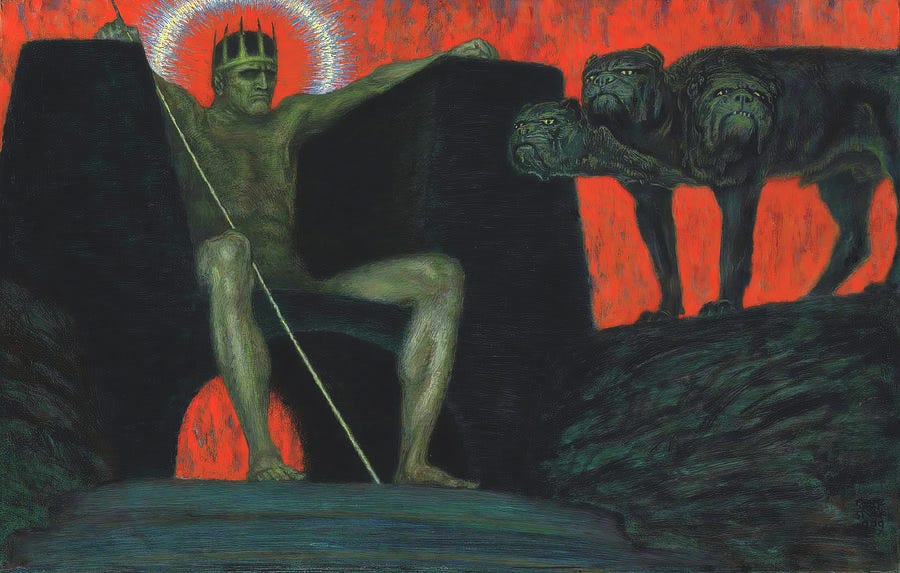
Discover more from Beyond the Ideological
“Being satisfied: this is the general model of being and living whose promoters and supporters do not appreciate the fact that it generates discontent.”
― Henri Lefebvre, Critique of Everyday Life
You don’t need to be a genius to see it—Trump, through MAGA, has unleashed something new. But here’s what’s missed: he hasn’t just reshaped the American Right; he rewired global conservatism. Trump has built unexpected alliances, ignited a movement with a radical edge, and given the Right something rare—a revolutionary mindset.
For centuries, conservatism has been tied to place. What it means to be conservative in Hungary is nothing like conservatism in France, Poland, or Italy—let alone in the United States, where freedom and democracy take on a wholly different meaning.
In Hungary, Viktor Orbán defends a conservatism of fortress and faith. National identity, Christian values, and defiance of globalism are at its core. The state doesn’t shrink—it shields. It intervenes in the economy and rewards large families to fight demographic decline. France, by contrast, sees conservatism as sovereignty and splendor. It’s torn between Gaullist statism and Catholic traditionalism, where the Right defends not just a nation, but a civilization. Poland, still haunted by the specter of communism, blends Catholic morality with economic populism—its right-wing movement opposing Brussels' social liberalism while championing welfare policies that would make many American conservatives flinch. And then there’s Italy, where the likes of Giorgia Meloni evoke a conservatism of God, family, and homeland, wrapped in nostalgia, appealing not just to the present but to the ghosts of Rome and Renaissance grandeur.
Across the Atlantic, conservatism follows a different rhythm. In America, it champions rugged individualism, free markets, and deep skepticism of government—an ethos that contrasts sharply with Europe’s more statist and nationalist right-wing traditions. This divide runs even deeper, which is why Europeans are often baffled when Americans show even the slightest distrust of their institutions, government agencies, or federal programs. For American conservatives, a large bureaucracy means less freedom—it hands more control over their lives to unelected officials rather than the leaders they voted for. For the American Right Bureaucracy isn’t synonymous with progress, but for conservative Europeans, this idea is entirely counterintuitive.
Yet despite these ideological and structural differences, conservatism is no longer as fractured as it once was. Historically, Western conservatives were united at best by a loose reverence for the Good, the True, and the Beautiful. But Trump didn’t just unify them—he gave them a new dialect, a new structure, and a revolutionary toolkit.
This unification may seem paradoxical, given that Trumpism is a complete disruption of traditional conservatism. But its influence extends beyond America’s borders, not just because of the nation’s unmatched power to shape global politics, but because it carries an aspirational pull—one that continues to draw conservatives toward its orbit.
This has never happened before.
Conservatives worldwide have long aligned on issues like immigration, free markets, and the war on terror, yet their core purpose remained fluid, shaped by local needs and circumstances. This time, however, they’ve found something deeper—something that unites them beyond vague ideals or philosophical missions. They are thinking together, moving together, and forging a shared momentum.
More importantly, Trump has taken a Gramscian approach to “the culture war”—not just winning elections but reshaping the narrative itself. Unlike past conservatives, he has gone on the offensive.
Gramsci argued that true power comes from cultural dominance, not just political control. For decades, the left seemed to win and set the terms of cultural and intellectual life. Now, it has met its first real challenger. Trump has disrupted the status quo, reframing debates, bypassing traditional gatekeepers, and making nationalism and populism mainstream. He has transformed conservatism from a defensive stance into an assertive, counter-hegemonic force—one that doesn’t just push back but drives the agenda.
While the Republican wave has undoubtedly reshaped America, its most significant impact may lie in its Gramscian spread across the globe. The American right-wing isn’t just influential—it’s contagious. And this, precisely, is the challenge Democrats will have to confront.
Subscribe to Beyond the Ideological
“All beings share a common world, but each creature has its own way of perceiving this world.” ― Montaigne “It is clear that the world is purely parodic, that each thing seen is the parody of another, or is the same thing in a deceptive form.” ― Bataille










